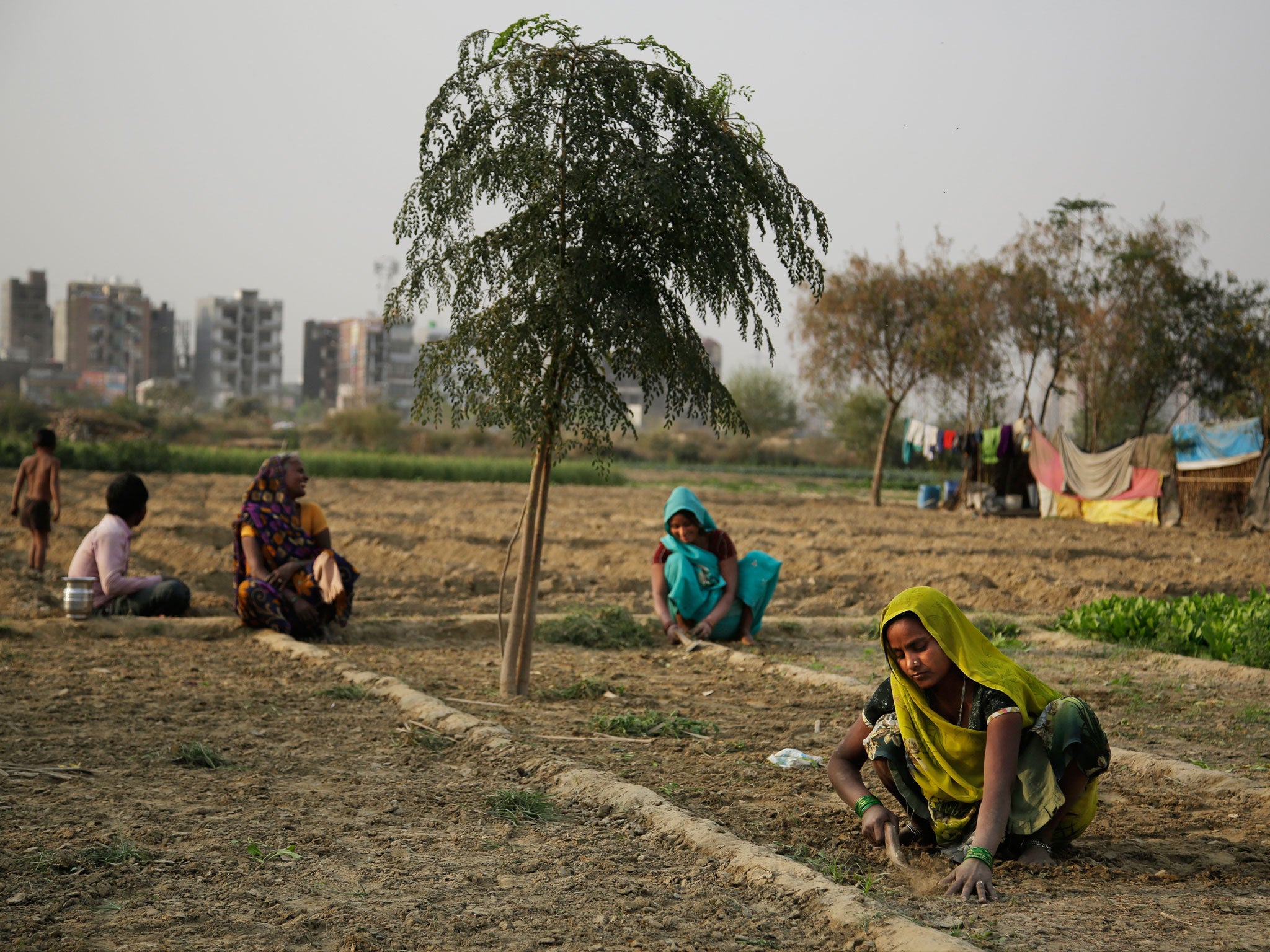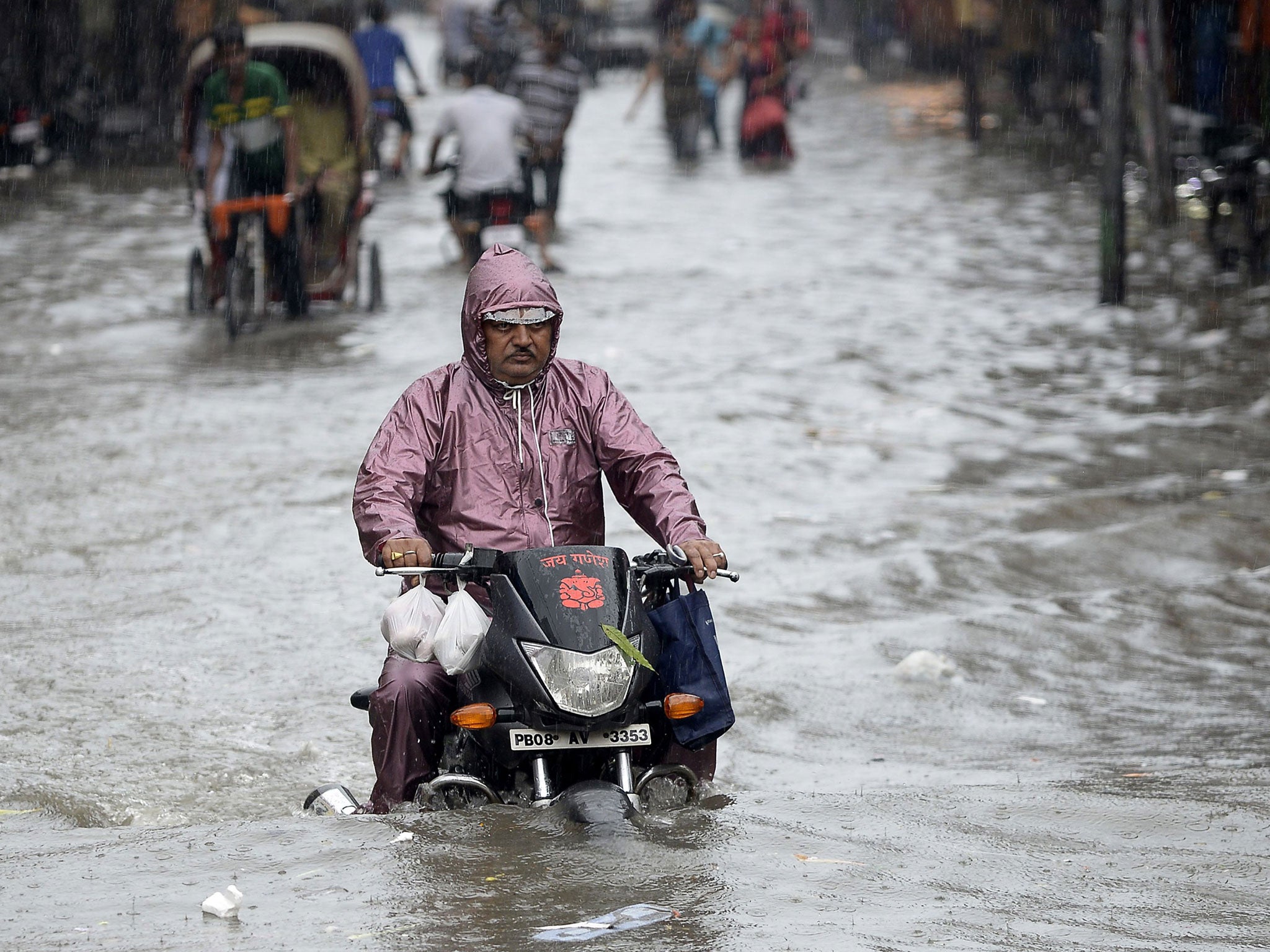Climate change linked to suicides of 59,000 farmers in India, finds report
Researchers find extra 67 people take their own lives for every one degree Celsius of warming

Scorching temperatures, drought, storms and famine triggered by climate change have led to thousands of extra suicides in India, a report has found.
During the south Asian nation’s growing season, every one degree Celsius of warming above 20°C sees an average of 67 more people take their own lives, according to the study.
Experts said the findings, published in the Proceedings of the National Academy of Sciences (PNAS), are particularly alarming as India’s average temperatures are expected to rise another 3°C by 2050, meaning hundreds of extra deaths.
India’s farmers are already regularly hit by extreme weather events, including strong storms and heat waves, and some still rely on natural rainfall to water their crops.
Scientists have shown that those weather patterns are already increasing as the planet warms.
Tamma Carleton, who conducted the research, said nearly 60,000 suicides over the past 30 years may be linked to climate change.
Looking at suicide data from India’s National Crime Records Bureau between 1967 and 2013, along with data on agricultural crop yields and on temperature change, she estimated that “warming temperature trends over the last three decades have already been responsible for over 59,000 suicides throughout India”.
“We may not be able to stop the world from warming, but that doesn’t mean we can’t do something to address suicide,” said Vikram Patel, an Indian psychiatrist and mental health expert with Harvard Medical School in Boston, who was not involved in the study.
There are many factors that can contribute to suicide, including poor crop yields, financial problems, access to easy methods of self-harm, or a lack of community support.
In India, many farmers will drink toxic pesticides as a way out of backbreaking debt.
For the past month, hundreds of farmers – some carrying human skulls they say are from farmers who committed suicide in the drought-stricken southern state of Tamil Nadu – have been staging what they say will be a 100-day protest in New Delhi to “prevent the suicide of farmers who feed the nation”.
Parts of western and north-eastern India have been hit by floods that have washed away villages and crops.
Heavy rains have caused rivers in states such as Gujarat, Assam and Rajasthan to burst their banks, killing 130 people.

India’s meteorological centre said this year’s monsoon rains, which fall between June and September, were 4 per cent above average.
Agriculture Minister Radha Mohan Singh told MPs last week there were 11,458 farmer suicides in 2016 – the lowest number in two decades.
It was also a year of mild temperatures and normal monsoon rains.
He acknowledged that the number of farmer suicides had gone up by about 9 per cent in each of the previous two years, both of which were marred by drought.
The crime bureau found that more than half (58 per cent) of the 12,602 farmer suicides in 2015 were driven by bankruptcy, indebtedness and other farming-related issues.
“Suicides occur due to extreme economic despair,” said Mankombu Sambasivan Swaminathan, a geneticist who has studied India’s agriculture industry since the 1960s.
“Suitable crop insurance and a prompt compensation of losses due to climate-related factors will help to avoid a sense of hopelessness that leads to suicide,” he said.
One fifth of the world’s suicides occur in India, roughly proportionate to the country’s share of the global population. Suicide rates there have doubled since 1980.
Additional reporting AP
Join our commenting forum
Join thought-provoking conversations, follow other Independent readers and see their replies
Comments
Bookmark popover
Removed from bookmarks